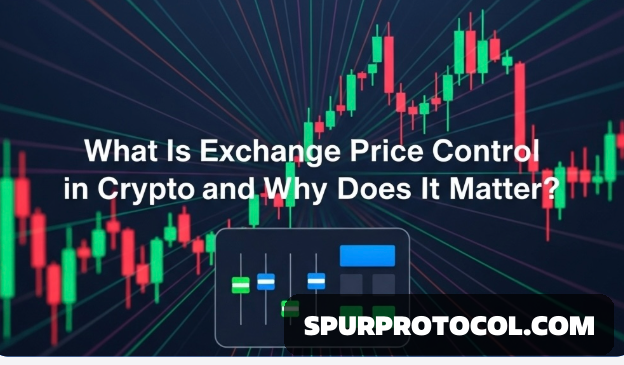What Is Exchange Price Control In Crypto And Why Does It Matter?
Price control isn’t always a conspiracy, sometimes it’s necessary to protect new tokens from extreme volatility. But when abused, it can mislead users, favor insiders, and create unfair market conditions.
Go Back

🕒 4:16 AM
📅 Jul 21, 2025
✍️ By prejworld
In the world of cryptocurrencies, prices can seem to move wildly and unpredictably. But behind the scenes, there's often a system of influence and control, especially on centralized exchanges that affects how prices behave. This is known as exchange price control.
Let’s explore what it means and why it matters to traders, investors, and project communities.
What Is Exchange Price Control?
Exchange price control refers to the influence that crypto exchanges (especially centralized ones like Binance, Coinbase, or KuCoin) have over the trading price of a coin or token listed on their platform.
While exchanges don’t directly “set” prices, they impact prices through trading rules, market depth, order book manipulation, listing timing, and liquidity management. For instance:
They may delay deposits/withdrawals to control supply flow.
They might pair tokens only with specific currencies (like USDT or BTC), affecting how prices are calculated.
Low liquidity listings can be easily moved by a few big orders, creating the illusion of volatility or value.
How Does It Work?
Here’s how exchange price control typically manifests:
Order Book Contro
Exchanges display buy/sell orders. If most are bots or controlled by insiders, they can manipulate the visible price trend.
Listing Manipulation
When new tokens list, exchanges often time the event to maximize hype. Price spikes and crashes are common, which can be engineered for profit.
Market Maker Influence
Some exchanges work with market makers to stabilize or inflate prices based on partnership deals.
Trade Volume Limits
Restricting or enabling high-volume trades can influence volatility. A coin with low allowed volume per order may have artificially steady prices.
Why Does This Matter?
Understanding price control mechanisms helps you:
Avoid price traps (like buying during pump-and-dump schemes).
Make better entry and exit decisions when trading.
Gauge a coin’s true market sentiment, beyond what the chart shows.
Assess the fairness and integrity of the exchange you're using.
